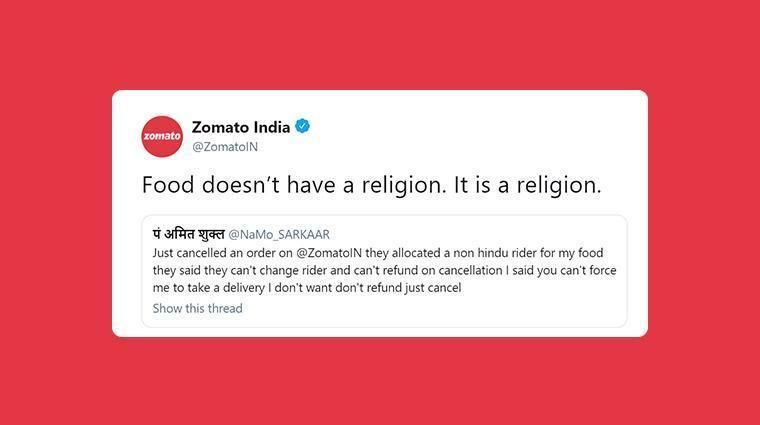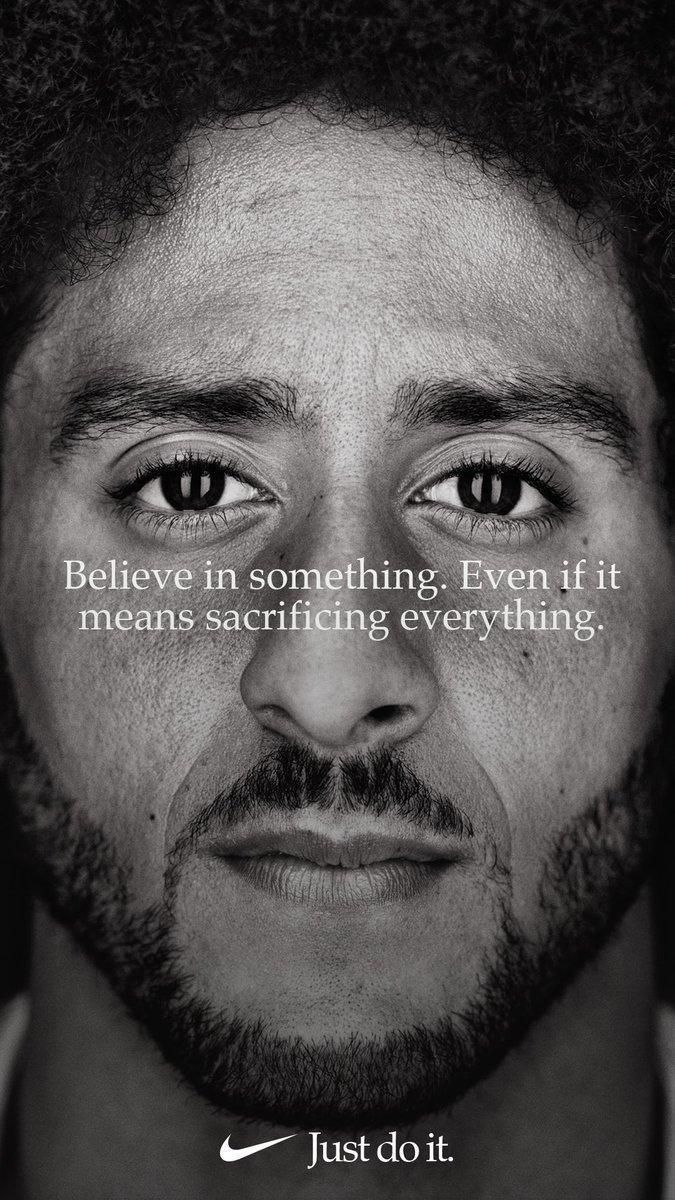Gone are the days when a brand could choose a time and place to attract attention. With the proliferation of digital media into our lives, Twitter trends and viral content now dictate when and where a brand engages with its audience.
While many times a 'moment' in the digital timeline doesn't ask you to take a position, such as when a cat video goes viral or India wins a sports tournament, there are also events which ask you to identify what's your political or moral stand on an issue.
Taking a stand on controversial topics could speak tonnes about your brand's identity such as Nike's 'For Once, Don't Do it' campaign addressing racism after the custodial death of a black man in the United States last month.
Double-edged sword
Taking an explicit political position could risk alienating a part of the target audience. Last year, Zomato tweeted “Food doesn’t have a religion. It is a religion,” when a customer rejected a delivery by a rider of a particular faith. The company trended on social media for days on end after the tweet and received both praise and criticism.

Danger of double standards
"The consumer isn't a moron; she is your wife. You insult her intelligence if you assume that a mere slogan and a few vapid adjectives will persuade her to buy anything," said David Ogilvy, advertising legend.
When French apparel brand Lacoste announced last year that it would swap its green crocodile logo with another endangered species, critics pointed out that the company was selling 'gloves made from deer leather' and 'cow leather handbags'.
While virtue signalling might look like a shortcut to win the consumer's trust and garner attention, brands need to audit themselves first to ensure that they aren't actually violating the principles that are espoused by a campaign.
Don't trivialise
In 2017, Pepsi had to pull back an ad featuring American celebrity Kendall Jenner after criticism that it had trivialised the Black Lives Matter movement. The company said that it was "trying to project a global message of unity, peace and understanding," and added, "clearly, we missed the mark”.
In the ad's climax, Jenner hands a can of Pepsi to a police officer during a protest who accepts it with appreciation and the crowd approves.
The company received a lot of flak for inaccurate representation of the equation between police and protesters, besides making light of the movement against police brutality and racial discrimination.
Nike and Black Lives Matter
Nike's viral campaign after the death of George Floyd should not have come as a surprise. The brand was simply following up on an unspoken contract — it was putting its reach and marketing might behind a movement that it already had a connection with.
Generally, brands try to steer clear of celebrities with strong political opinions. However, Nike turned the concept on its head with its "Believe in something” campaign with civil rights activist and American football player Colin Kaepernick.
In 2016, Kaepernick knelt when the US national anthem played before a National Football League match to protest against racism and police brutality. As a result, Kaepernick was shunted out of the NFL. Nike, however, leveraged the athlete's loss into a story about sacrifice and standing up for one's beliefs.
Following the campaign, the company's stock price took a hit and it faced the ire of US President Donald Trump. However, Nike sales grew by 31 percent from Sunday through Tuesday, compared with the previous year even though the brand was at the receiving end of a lot of outrage from many customers.

Three golden rules for brands to follow
1. Speaking out could also seem like speaking out of turn. Not all brands are Amul to be able to serve up a hot take every day for 60 years. It must look like you really care. Heck, you should do it only if you really care.
2. It's important to know your target audience. Any grandstanding that contests the beliefs of a sizeable part of your target group could hurt your brand's image. It's important to do a thorough SWOT analysis before going ahead with a topical campaign.
3. You must gauge how much of your brand capital you can expend. For instance, Hindustan Unilever's products are so deeply attached with our lives that it could withstand the blowback from its Holi campaign around the theme of Hindu-Muslim unity last year.
While speaking up is becoming important owing to the increased scrutiny on brands due to social media, flippancy and haste are costly mistakes. Your brand needs to be prepared for both positive and negative responses to the campaign.
Right from the decision of taking a stand on a social issue to designing a campaign, your brand needs to follow some essential steps to strike the right note.
(Edited by Saheli Sen Gupta)
(Disclaimer: The views and opinions expressed in this article are those of the author and do not necessarily reflect the views of YourStory.)
Want to make your startup journey smooth? YS Education brings a comprehensive Funding Course, where you also get a chance to pitch your business plan to top investors. Click here to know more.
Link : https://yourstory.com/2020/07/brands-digital-media-controversy-campaign-strategies
Author :- Shreesh Shankar ( )
July 07, 2020 at 12:26PM
YourStory


